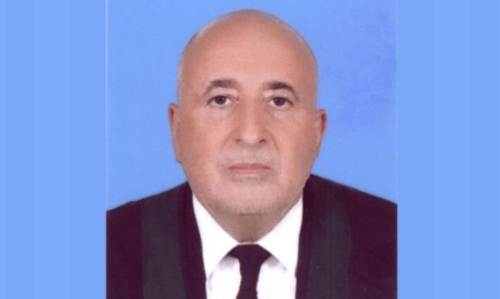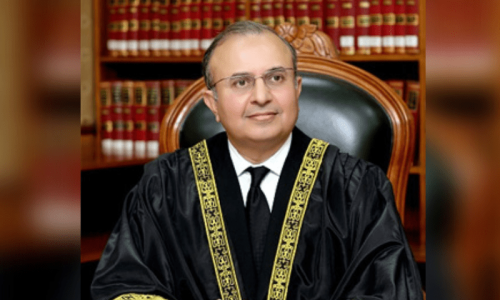TWO mosques in Christchurch, New Zealand, were the target of an Islamophobic attack that killed at least 49 people and left over 40 wounded. New Zealand’s Prime Minister Jacinda Ardern described it as a terrorist attack and Friday as one of the country’s darkest days. She further stated that New Zealand was a place where people should feel secure.
Muslims globally are hurt and deeply saddened by this event. Such a heinous crime to have happened at a place of worship is not just unfathomable but cowardly.
The perpetrators of the attack have been labelled in many different ways — Islamophobic, white supremacists and racist, amongst others.
Whatever way we name it, we need to accept that hatred toward Muslims is steadily on the rise. Recent discussions in the UK on defining Islamophobia have been helpful in complicating the many different layers of this hate.
Hatred is often not logical or rational — it can show its ugly head for all sorts of reasons. Hatred toward Muslims is racialised because we still live in a world where white privilege prevails.
What is giving rise to Islamophobia? That’s another difficult question. Fear or misunderstanding of anything can lead to irrational thoughts and actions. We live in a time of quick social media quips, where statements are sharpened for likes and re-tweets.
Life in twitterland often leaves me thinking that short tweets do an injustice to so many issues. Social media has become a mass vehicle for hateful statements toward minorities here in Europe on the one hand and a bastion of bridge builders and lovers of diversity and pluralism on the other.
Keyboard warriors come in all shapes and sizes but the most hateful of statements gain traction with fringe lunatics. Words and images matter and often empower horrible actions. It comes as no shock that the mosque terrorist live-streamed his rampage at Al Noor mosque.
The rise of the right wing with the aim of exclusivist ideals of ‘white’ Europe are polarising communities against each other rather than building bridges. The never-ending assumed cultural clash between ‘Islam and the west’ fuels hatred.
Terrorists do not have a sophisticated way of thinking about society and its people. In a simplistic way the terrorists at the mosques believed that Islam is something that should remain far away in the East and is not compatible in New Zealand.
The globalised world of differences is the reality. Take for example London where immigrant communities thrive. Sadiq Khan, London’s mayor, is the pride of many British Pakistanis but there are many who are repulsed that the office is not held by a quintessential white, English, Oxbridge-educated man.
Islamophobia rises through the dismissal that Muslims are very much part of the west and the east. This mixture of diversity and pluralism is not welcomed by all and today it has shown its ugly head in the form of the mosque terrorists.
We must acknowledge and reflect on the fact that words of hate in one part of the world are being acted out in another. Take for example the news emerging that one of the attackers, Brenton Tarrant, was inspired by Anders Breivik, the Norwegian white supremacist who killed 77 people in 2011 and he called for the killing of Sadiq Khan who he understood to be “an open sign of disenfranchisement and ethnic replacement of the British people in the British isles”.
Those who want to see individuals and communities sit in neat monolithic boxes are disturbed with mixing of not just people but of ideas.
There is a lot of discussion and debate in Europe about immigration and how to curb it. Many have argued that the mayhem of Brexit is based on racist inflections infused in anti-immigration policy.
Tarrant was further inspired by Donald Trump’s immigration policy, especially toward Muslims in the so-called Muslim ban, by praising Trump in his dossier as a “symbol of renewed white identity and common purpose”.
Growing up and living in ‘the west’ has left me somewhat caught in the middle of our clashing worlds. It has made me think that Islamophobia is a very complex system. Being equally proud of my Scottish and Pakistani heritage confuses many — “surely you must feel more Scottish than Pakistani?”.
This often leads to folks offering me solidarity against Islamophobia but then further demanding my agreement that Europe, or Ireland, is a better place, than say Pakistan, where “they have no rights”.
I’m not willing to reject the heritage and history that my parents infused in me from their life in Sialkot. Identities are complex and we should not have to show complete allegiance to one or the other.
To stand firmly in different worlds challenges both the simplicity of Islamophobes and the division of our worlds.
We need honest and critical discussions on Islamophobia at governmental and grassroots levels as we strengthen our resolve against all forms of hate. The time is now for standing in solidarity with Muslims throughout the world. Muslims are in pain today; mourning on this Friday, a day of congregational prayers for Muslims. A day that unites us all in sorrow.
There is no quick solution to stamping out hatred but we heal and strengthen each other when we are aware of each other’s problems in sympathy and empathy. Intersectionality is a key term in our fight against social injustice. It is the realisation that all our social injustices are connected.
When we begin to find a way of connecting these issues together, we begin to work toward a better diverse society together, in every region of the world. The time is now for countries with Muslim minorities to act against Islamophobia just as they tackle other forms of hate.
The writer is a senior lecturer in contemporary Islam at the University College Cork, Republic of Ireland. Twitter @desondy
Published in Dawn, March 16th, 2019












































Dear visitor, the comments section is undergoing an overhaul and will return soon.